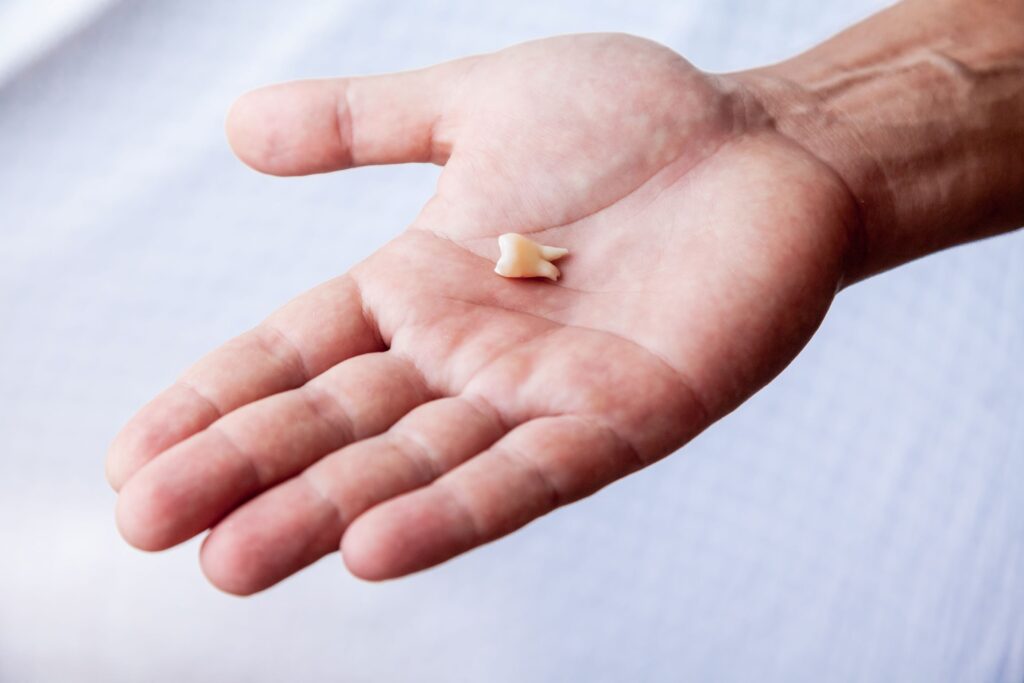
Did you know that sources report that athletes who don’t wear a mouthguard may be up to 60 times more likely to sustain a dental injury? A single blow to the face delivered with sufficient force can potentially dislodge one or more teeth, necessitating an emergency dental visit.
However, many patients are unsure of how to safely store their damaged tooth until it’s time to visit their provider’s office. For instance, you might wonder if it’s safe to place it back in its socket. Continue reading to learn more about whether this is recommended!
Why Did My Tooth Fall Out?
Would you be surprised to learn that periodontitis, or advanced gum disease, is the leading cause of tooth loss in adults? If your connective tissues are infected, they eventually start receding from your enamel to try to escape the disease. This leaves your teeth without anything to anchor them in place, and they can fall out.
However, you might also experience tooth loss due to severe cavities or physical trauma that destabilizes one or knocks it out of your mouth altogether. Whatever the reason, it’s imperative that you contact your dentist immediately if you hope to save your damaged chomper.
Can I Put a Dislodged Tooth Back in Its Socket?
It’s normal to feel uncertain about what to do once you realize you’ve lost a tooth. Sometimes, your dentist can place it back into your jaw to reintegrate with the bone over time. This is because the roots contain living cells, but they only remain viable for a short time outside your mouth, so you must handle your tooth carefully.
For example, you should only touch the crown, or the tooth-shaped portion, to avoid harming the roots. Then, if it’s not broken and there’s no jagged enamel that might cut your gums, you can carefully press it back into its socket to keep it safe until you arrive at your dentist’s office. Otherwise, it’s best to store it in a container with a small amount of milk or your own saliva.
How Does My Dentist Treat Dislodged Teeth?
When you arrive at the scheduled time, your provider will examine your mouth and provide pain relief as needed, depending on your unique circumstances. They might also take X-rays or other scans to determine the full extent of the harm done.
Based on their findings, they might try to anchor your tooth in its socket so it can fuse with the bone material. Otherwise, they’ll recommend an appropriate replacement, such as a dental implant, bridge, or dentures.
If you’ve just lost an adult tooth, contacting your emergency dentist immediately can help you get help fast enough to save your smile!
Meet the Author
Dr. Christopher Cannady has years of experience helping patients improve their lives by enhancing their dental condition. He earned his dental degree from the Nova Southeastern University College of Dental Medicine and has since completed hundreds of hours of continuing education to be able to offer the most current treatment options using state-of-the-art technology. He also offers same-day emergency appointments so if you’ve lost a tooth, you don’t have to wait long for help. You can contact the office on the website or by calling (727) 855-8545.